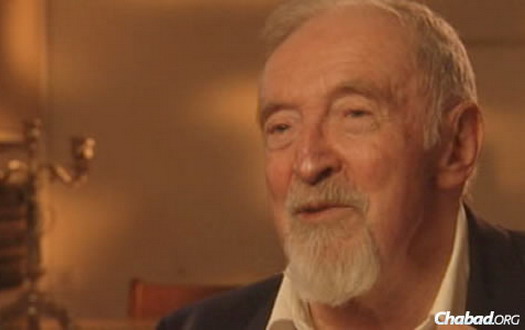
Remembering Rabbi Mordechai Piron, 93
Major Gen. Rabbi Mordechai Piron, chief rabbi of the Israel Defense Force during the 1973 Yom Kippur War, as well as a strong advocate for war widows and orphans, passed away on May 27. He was 93 years old.
Piron was born Mordechai Pisk, the only child to Viennese Jews, in 1921. In 1938, following the Anschluss, in which Austria was annexed into Nazi Germany, young Mordechai was spirited into British Mandate Palestine by the Youth Aliyah movement, the Jewish organization that rescued thousands of Jewish children from the Nazis, and arranged for their resettlement in kibbutzim and youth villages. His family was murdered by the Nazis.
He enrolled in Yeshivat Mercaz HaRav Kook, where he would study for a decade. Taking on a Hebrew last name, Piron served in the ranks of the Haganah (the precursor to the IDF), and was wounded in the 1948 War of Independence.
In 1971, he succeeded Rabbi Shlomo Goren as chief rabbi of the IDF—a position he would hold two years later during the Yom Kippur War, when he had the dubious distinction of informing families that their loved ones had fallen and overseeing the burial of the many casualties. Reflecting on that dreadful loss of life, Piron has said he has never been fully joyful since then.
In an interview with Kfar Chabad magazine, Piron recalled that the Rebbe—Rabbi Menachem M. Schneerson, of righteous memory—had warned him of the impending war, “but G‑d had closed our eyes, and we did not see it coming.”
At the Rebbe’s urging, Piron was instrumental in ensuring that all army bases hadkoshermezuzahs. During the war, he had issued an order that Chabad Chassidim were to be given full access to all installations, where they brought tefillin, words of faith and messages of encouragement from the Rebbe.
“I kept a constant phone connection with the Rebbe, through his secretariat,” during the war, he recalled. “The Rebbe would encourage me. More than once I would receive a midnight call from the Rebbe telling us to be happy, as joy sweetens the most severe decrees. Given the terrible morale in the army—especially in the high command—the Rebbe’s words lightened our load … it gave me the feeling of someone placing his hand on my shoulders whispering, ‘Move on, don’t fall apart.’ ”
The Rebbe’s Initiative
Following the war, Piron headed a bet din (ecclesiastical court) tasked with allowing war widows (some of whose husbands’ remains were never identified) to remarry. He was also active in following the Rebbe’s initiative to arrange mass bar mitzvahs for war orphans in Kfar Chabad, Israel.
In 1980, he retired from the IDF rabbinate and relocated to Zurich, Switzerland, where he served as community rabbi until 1992.
Upon his return to Jerusalem, he devoted himself to writing—he was the author of six books on Jewish law, philosophy and Jewish history—and his work on behalf of the Sapir Center for Jewish Education and Culture in the Old City.
Piron was predeceased by his wife, Ahuva—with whom he had three children—in 2001.












